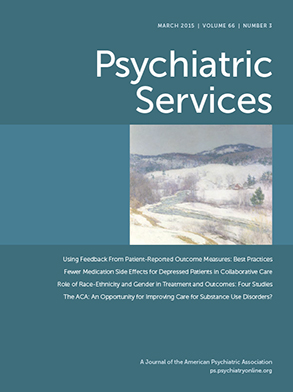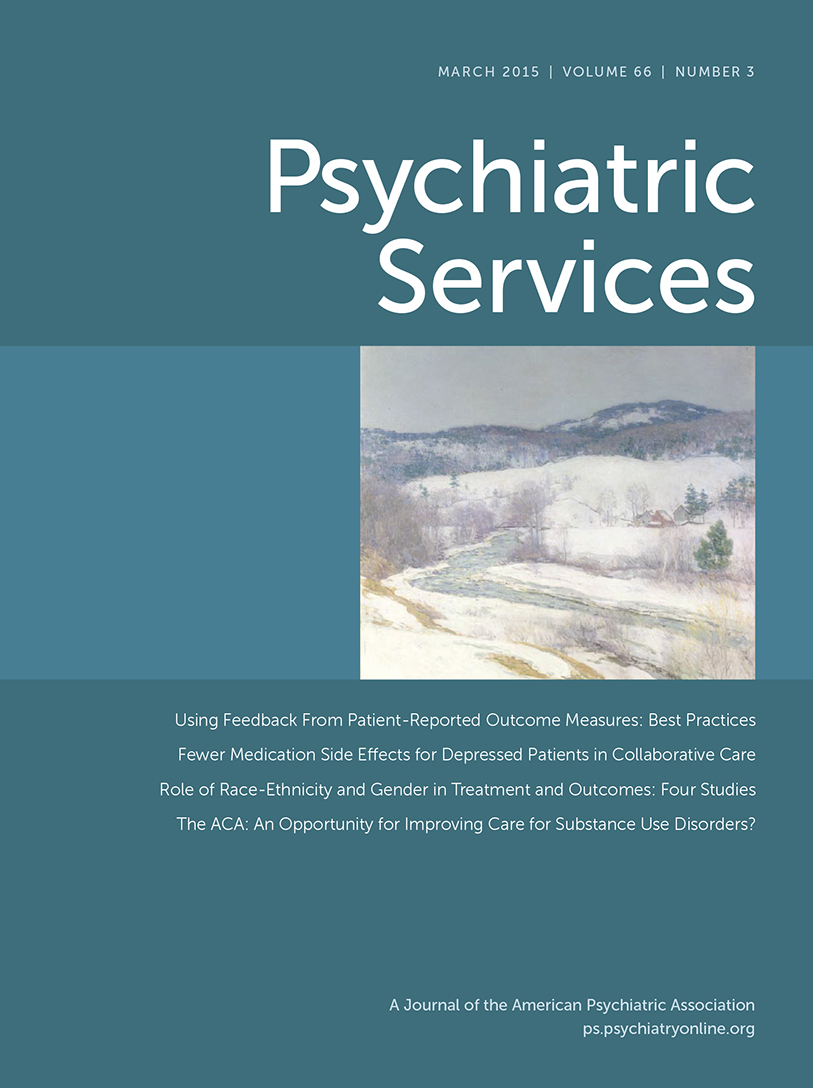The article by Liu and colleagues in this issue provides current data on schizophrenia disability in China. The findings contribute to a long-running international debate about whether the prognosis of schizophrenia is better in non-Western countries. The debate began with the International Pilot Study of Schizophrenia (IPSS), conducted in nine countries in the 1970s under the sponsorship of the World Health Organization (WHO). The IPSS used a sophisticated clinical instrument, the Present State Examination (PSE), administered by expert clinicians. The IPSS found that a “concordant” group of patients with schizophrenia could be identified in all nine countries and that the prognosis of schizophrenia was far better in the non-Western countries, such as Nigeria, India, and Taiwan, than in the Western countries, such as England, Russia, Denmark, and the United States.
Unfortunately, full replication of the IPSS has not been possible because of the complexity and expense. Thus it is not known whether a better prognosis of schizophrenia would be found today in non-Western countries. One suspects that this would have changed because of industrialization and globalization, but new comparable data are lacking.
Fifteen- and 20-year follow-up studies of the IPSS samples, as well as other WHO-sponsored studies that used a similar methodology, showed that recovery from psychotic illness was more prevalent than expected (about half of the samples had recovered), but marked geographic heterogeneity remained regarding outcome, with patients in Western countries showing poorer disability scores.
This month’s study by Liu and colleagues is based on a 2006 Chinese survey that collected data from more than two million people. The survey dwarfs previous psychiatric epidemiological studies. The almost perfect response rate (99.8%) is also quite remarkable, as is the fact that trained clinicians examined respondents who were deemed disabled. They used the ICD-10 Symptom Checklist for Mental Disorders, which yielded a total of 7,628 patients with schizophrenia.
The largest “global” sample to date—more than 150,000 people in 28 countries—was examined as part of the WHO International Consortium in Psychiatric Epidemiology. The Composite International Diagnostic Interview (CIDI) was administered by lay interviewers. Although the CIDI appears to be a useful tool to assess common mental disorders (depression, anxiety, and substance use disorders), it has traditionally been deemed difficult for assessing severe disorders, such as schizophrenia, characterized by erratic behavior, unusual thought content, and limited cooperation and insight, because lay interviewers rely mainly on responses to interview probes. Thus the availability of trained clinicians adds credibility to the process.
Liu and colleagues report that schizophrenia disability in China in 2006 was .41 overall, up from .26 in a survey done two decades before, possibly reflecting the deep changes in Chinese society in recent decades. As measured by the WHO Disability Assessment Schedule (WHODAS), schizophrenia disability was found to be higher among rural women than rural men (.48% versus .38%) and higher in rural than in urban areas (.43% versus .31%)—a reversal of previous observations.
The 2000 Global Burden of Disease Study estimated somewhat lower rates of schizophrenia in Taiwan and China (.3% and .4%, respectively) than in Western countries, such as the United States (.7%). The 2000 study also estimated “disability weights” of .627 and .351, respectively, for untreated and treated schizophrenia, emphasizing the need for early recognition and intervention. It is not known whether disability was estimated with the WHODAS, and thus these rates may not be comparable to those of Liu and colleagues.
From a diagnostic perspective, use of expert clinicians in the Chinese survey seems a positive feature; however, use of a simple checklist seems far from the rigorous standards of the PSE. The new PSE, the Schedules for Clinical Assessment in Neuropsychiatry (SCAN-PSE), can be used to make DSM-5 and ICD-10 diagnoses, and a few investigators in the United States and abroad continue using this traditional approach to assess psychopathology. The SCAN-PSE also offers the possibility of a “dimensional approach” to psychopathology, allowing the derivation of “profiles” for various syndromes, similarly to what the Minnesota Multiphasic Personality Inventory has done in clinical psychology. With its rich phenomenology, the SCAN-PSE offers an important tool for new global studies and may provide a strategy to start breaking down the schizophrenia syndrome into meaningful subtypes, as recommended by novel diagnostic approaches such as NIMH’s Research Domain Criteria. Because the WHODAS is now included in part III of the DSM-5, one also hopes to see increased use of this instrument in the United States.

